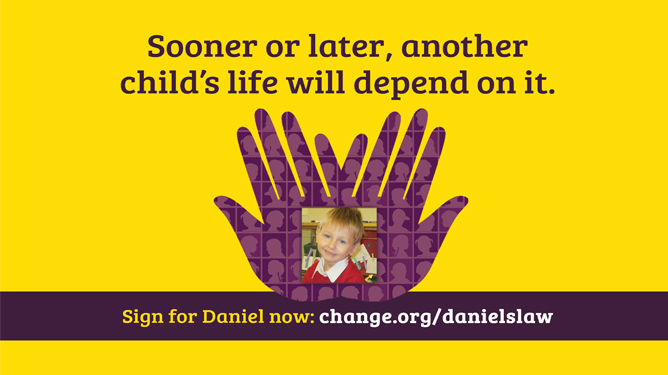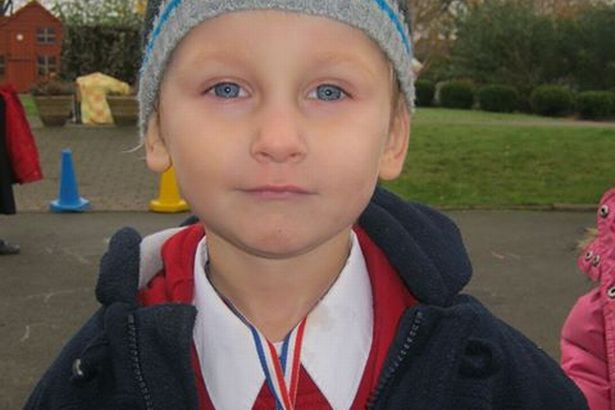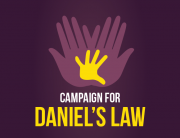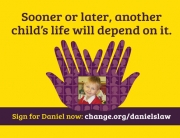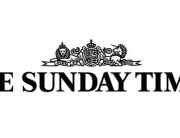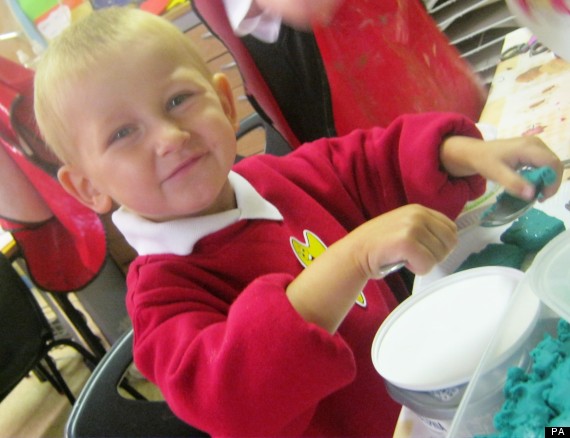There have been a number of exceptionally significant developments for the campaign for Daniel’s Law in recent weeks. In the light of ongoing revelations of historic child abuse – at best unreported and at worst covered-up – in regulated settings ranging from schools to hospitals and care homes, the government came under serious pressure from both media and politicians to launch an independent inquiry. Finally, NSPCC chief Peter Wanless was appointed to head up such a commission last week.
As the depravity of the Savile affair continues to unfold and other high profile celebrities and politicians are implicated in child abuse allegations, Cameron appointed a second inquiry under Baroness Butler-Sloss to investigate levels of awareness, complicity and cover-up in Westminster. Revelations concerned missing dossiers would appear to indicate the horror is rooted to the very core of our establishment.
And therein is the irony. Not only is the NSPCC increasingly recognised as the charity of the establishment, which must surely undermine the credibility of Wanless’ appointment, but the Home Office was immediately forced to defend Butler-Sloss who, according to The Times, refused to go public about a bishop implicated in a historic scandal, telling a victim of alleged abuse she did not want to include it in her review because she “cared about the Church” and “the press would love a bishop”.
Stepping down earlier today, Butler-Sloss said “It has become apparent that there is a widespread perception, particularly among victim and survivor groups, that I am not the right person to chair the inquiry”. The Home Secretary Theresa May says she will waste no time naming a replacement, so we await the announcement with interest. Shortly following his appointment to lead the historic child abuse inquiry, Peter Wanless made a welcome U-turn when he announced to press that the NSPCC would now support mandatory reporting in some settings. Although this is encouraging progress, given the charity’s previously implacable position, the current proposal does not go nearly far enough – it relates to just residential settings e.g. boarding schools, care homes and hospitals. Critics immediately drew comparisons including introducing a drink drive law which only applies to lorry drivers; Baroness Walmsley highlighted the dilemma of a teacher working in a boarding school who would be required by law to report child abuse there, under NSPCC proposals, but not on moving to take up a new position at a nearby primary school. Researcher and child protection campaigner Jonathan West describes the NSPCC’s ‘new’ position as a thinly veiled attempt to maintain the status quo – see Jonathan’s blog for details www.scepticalthoughts.blogspot.co.uk.
Hardly surprising then, that within hours of Wanless’ announcement, Cameron followed the NSPCC’s lead and asked the House in Prime Minister’s Questions “should we change the law so there is a requirement to report and make it a criminal offence not to report? The government is currently looking at that and of course both reviews will be able to examine this particular point and advise us accordingly. I think it may well be time to take that sort of step forward”. If, as is undoubtedly the case, Cameron’s definition of what is required in terms of mandatory reporting is in line with the NSPCC’s, then it will fall far short of what is required.
The scale of abuse now under investigation in settings including hospitals, boarding schools and children homes clearly shows that the current system isn’t protecting children as it should. However, the NSPCC will need to explain why it thinks that children in these specific settings are deserving of the protection of mandatory reporting, while the vast majority of children are not.
Apart from the application to only very limited settings (which means the law would not have helped Daniel, for instance) there are also very narrow parameters to the NSPCC’s definition of mandatory reporting, as observed by James Meikle in The Guardian:
The NSPCC made clear it was not advocating blanket mandatory reporting and in other interviews said it was calling for something much more narrow – “wilful cover-up of abuse” – to prevent unfounded concerns being raised about people or organisations.
We are pleased the NSPCC now sees a case for criminalising the act of cover-up; that is, the failure of an individual within an institution responsible for the care and well-being of a child, to put the safety of a child before the disclosure of what they know to be a criminal act. The NSPCC finally concedes that allowing abuse to be covered up or swept under the carpet can no longer be tolerated and this is undoubtedly good news.
However, we take issue with continued reference to “the disclosure of what is known to be a criminal act”. Staff will rarely know for certain that a criminal act of child abuse has taken place unless they witness it or the perpetrator admits it. In most situations, there will be suspicions to varying degree, depending on what has been seen or what a child has disclosed. In Daniel’s case, his increasingly desperate attempts to forage for food, his dramatic weight loss and the multiple injuries witnessed on his body should have given staff at Little Heath School ‘reasonable suspicion’ to report.
A reasonable suspicion is a justified basis for starting an investigation on the basis of a formal report; it is the mandatory reporting of reasonable suspicions which the Mandate Now coalition of charities is calling for. By restricting mandatory reporting only to cases where staff ‘know’ that a criminal act has occurred, almost all practical situations are eliminated from the scope of the NSPCC’s proposal. Moreover, if mandatory reporting were to be introduced with such a narrow scope, then it could be argued the law is saying that not reporting reasonable suspicions is acceptable.
In spite of reservations with regard the detail of statements from the Prime Minister and the NSPCC, media and public interest in debate of child abuse and protection issues this week has had a great impact on our campaign and signatures have risen to almost 128,000 at the time of writing.
Could this be the tipping point we have been pushing for? Certainly, Labour leader Ed Milliband is backing the call for mandatory reporting in regulated activities, as the number of MPS and peers in support from all parties continues to grow. On Tuesday, Baroness Walmsley’s proposed amendment to the Serious Crime Bill will be debated in the House of Lords; the amendment rests on the introduction of mandatory reporting in regulated settings.
Please continue to do all you can to promote the campaign for Daniel’s Law – whilst the Mandate Now coalition of charities continues its work in Westminster, our campaign continues to provide a clear indication of public opinion. I will write again to Cameron, Clegg and Gove this week and their responses will be posted here.

